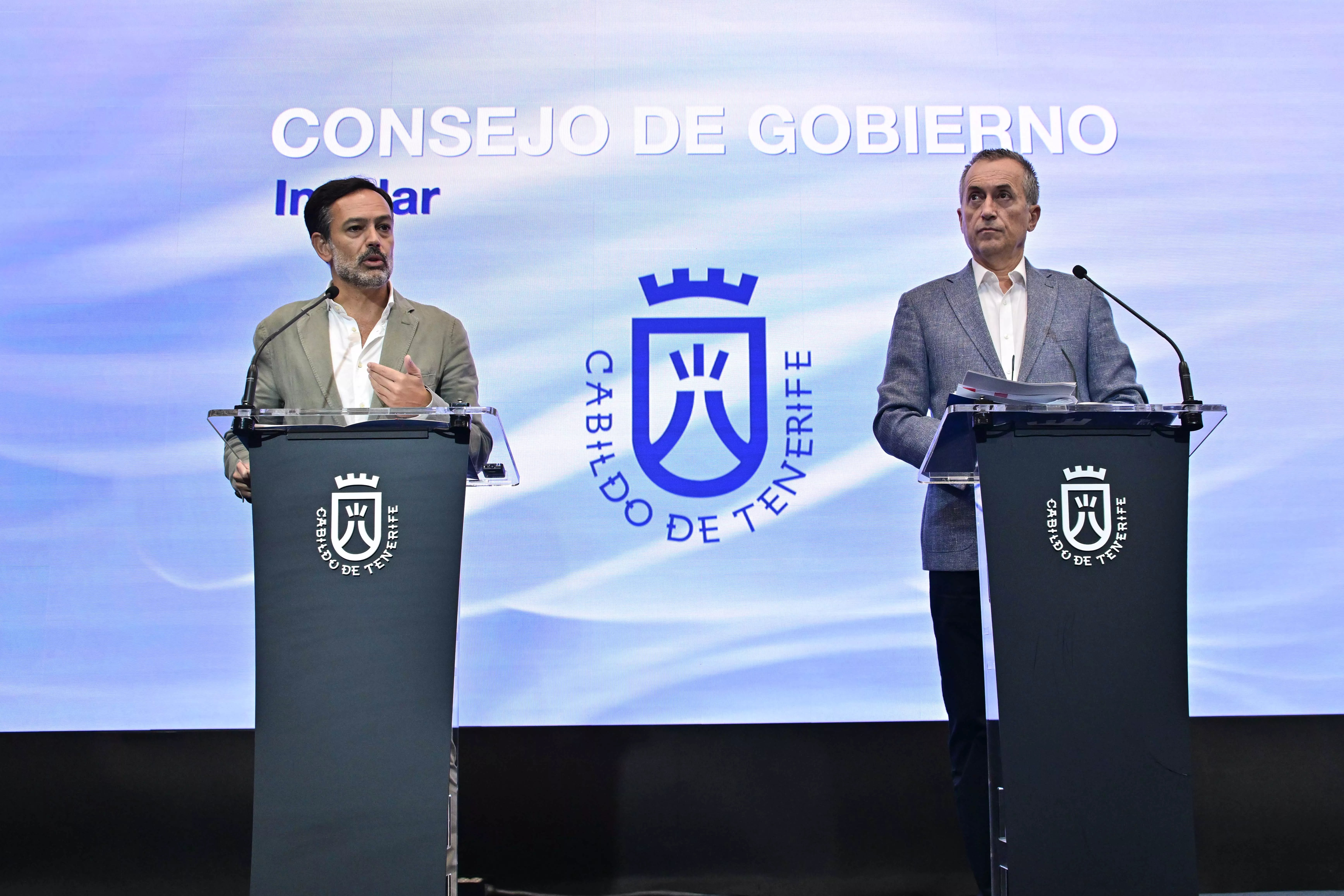The Canary Islands Association of Urban Law, ACADUR, inaugurated the XIV Canary Law Congress this Wednesday at the University of La Laguna Auditorium, which will see the involvement of over 350 professionals and specialists in the field until Friday. They will engage in discussions concerning the challenges faced by the organisation and development of the Archipelago.
The opening of the event, themed ‘A Strategy for the City: The Urban Agenda’, featured contributions from the Minister of Territorial Policy, Territorial Cohesion, and Water of the Canary Islands Government, Manuel Miranda; Tenerife Cabildo’s Director of Foreign Action, Pedro González; the Councillor for Rural Development, Cristina Ledesma; and ACADUR’s President, Mercedes Contreras Fernández.
To start, Manuel Miranda acknowledged the significance of this new Congress edition, noting that “last year’s event in La Gomera helped promote dialogues aimed at updating the Land Law across all administrations.” He added, “This year, we are discussing the urban agenda, a subject we also intend to integrate into this regulation, alongside the demographic challenge and climate change. We trust that during these days we will achieve conclusions and contributions that will enhance our planning efforts in the Canary Islands.”
Meanwhile, Pedro González highlighted “the essential role of Tenerife Council’s participation in this meeting, as it underscores the criticality of island planning and the execution of key island and strategic projects for the Island’s development.”


Cristina Ledesma also expressed her hope that “the information, insights, and recommendations gleaned from this Congress will assist in advancing municipal plans and delivering better responses to citizens.”
Lastly, Mercedes Contreras expressed gratitude for the strong reception of the Congress among professionals and experts, as the exchange of knowledge is crucial for progressing in a domain where urban planning is vital for the healthy development of contemporary societies, while also providing an opportunity for professionals to reconnect and address the actual needs of the Canary Islands’ population.
Following the inauguration, the conference on ‘World Heritage Cities’ was presented by José David Albarrán-Periañez, a geographer and tourism consultant, who emphasised the relationship between heritage and tourism. He stated, “Activities such as tourism have enabled certain resources to be conditioned, restored, and preserved due to their status as consumable products in today’s society.” He further asserted, “Heritage assets, because of their significance, have the potential to contribute to the socioeconomic and territorial development of their locales,” and added that “heritage plays a key role in defining unique tourist destinations, allowing for the preservation of heritage through innovative uses while enhancing social valuation, highlighting the vital role local instruments and regulations play in achieving these aims.”
On a global scale, the expert noted that “heritage tourism accounts for 40% of international arrivals worldwide.”
Throughout the morning, three round table discussions were conducted, the first addressing ‘The Controversial Legal Nature of the Plans and Their Effects’, featuring lawyer and former Supreme Court judge Rafael Fernández Valverde; Administrative Law professor José María Baño León; and Supreme Court judge Wenceslao Olea Godoy.
This discussion highlighted the necessity of establishing general criteria enabling communities to approach management plans more swiftly, efficiently, and coherently. “Let’s create sound plans to avoid annulments in court,” Godoy declared.
García León encouraged all professionals, and society at large, to collaborate. “We have significant work ahead, but one of the most crucial tasks is altering the mindset resistant to reforms since it is not solely about bureaucracy but also about the local forces at play.”
After a half-hour break, the session reconvened at 1:00 p.m. with a panel discussing “The Necessary Coordination of Concurrent Competencies, Essential Strategic Environmental Assessment, and Sectoral Reports.”
The afternoon sessions on Wednesday will continue with contributions from Administrative Law Professor Ángel Menéndez Rexach and Professor Felipe Iglesias González, who will discuss ‘The Long-Awaited Reform of the State Land Law’.
The first day of the XIV Canarian Congress of Urban Law will conclude with a discussion on ‘The Management of Municipal Urban Planning’ featuring representatives of the Government of the Canary Islands, FECAM, and FECAI.
This initiative will continue until 15th November, with the collaboration of the San Cristóbal de La Laguna City Council, the Government of the Canary Islands, the seven island councils, and the University of La Laguna.
















